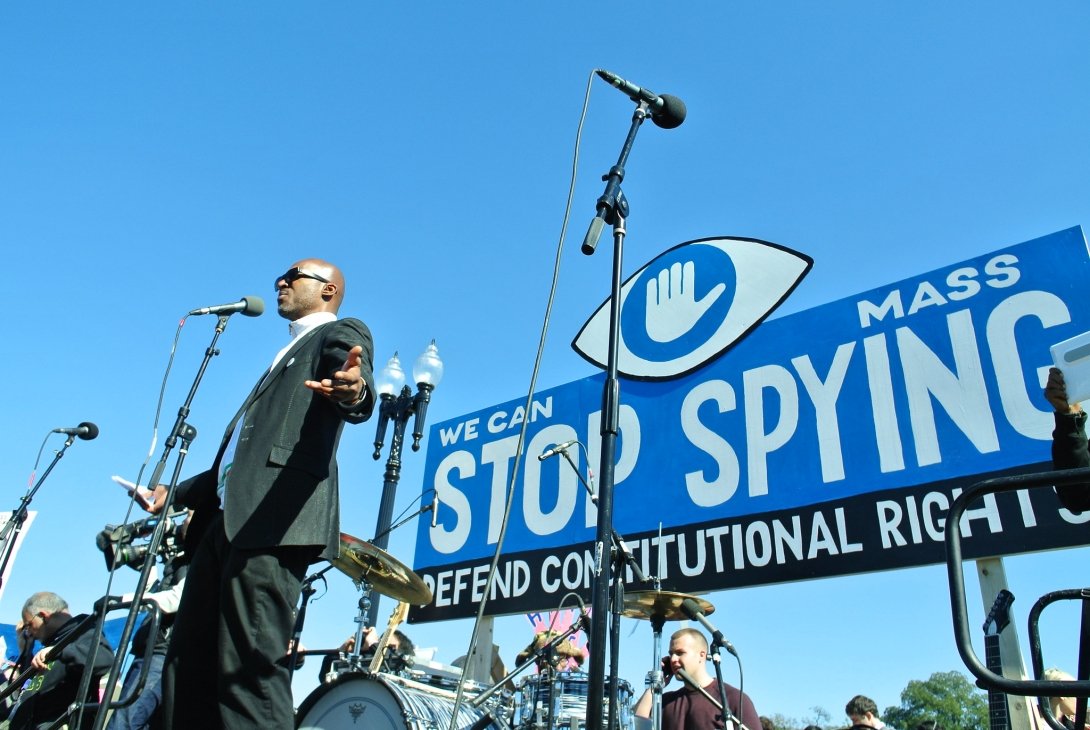The USA Freedom Act Passed! Now What?

On Tuesday, the Senate passed the USA Freedom Act, a surveillance reform bill that reins in some of the NSA’s spying powers. President Obama signed the bill into law later that same day.
What the new law does
The law reinstates — but reforms — Section 215 of the Patriot Act, several provisions of which had expired at midnight on June 1 thanks to the amazing work of activists and organizations around the country. Getting even that was a huge win and something many thought impossible because it stopped the rubber-stamp renewal of surveillance laws that had become the norm.
While it might sound odd to call the reinstatement of Section 215 a win, the USA Freedom Act places some meaningful restrictions on what the NSA can do. In fact, its passage marks the first time the government has reined in NSA operations since before the 9/11 attacks.
The new law focuses primarily on the NSA’s mass surveillance of our phone records, one of the many programs whistleblower Edward Snowden confirmed two years ago. His efforts showed just how widespread the NSA’s continuous collection of information has been.
Until this week, the government had been engaging in a dragnet collection of the metadata — who you called, and when, and how long you spoke, etc. — from virtually all Americans’ telephone calls
Under the USA Freedom Act, phone companies will keep these kinds of records, and the government will have to seek a court order to collect them for specific targets: a particular individual, device or account. The government can no longer sweep up details about everyone’s communications without some justification and some specific criteria to gather that information.
While the new law falls short of the warrant requirement and other safeguards the Fourth Amendment provides — rights we would like to see restored — it’s an important step toward protecting our privacy.
The new law also shines some much-needed light on the proceedings of the secretive Foreign Intelligence Surveillance Court that oversees much of the NSA’s intelligence operation. It further mandates new reporting requirements for the government’s surveillance activities, and allows companies to report on the government requests these companies get for their customers’ personal information. This kind of transparency is a crucial tool for monitoring how the NSA and other agencies use (or abuse) these programs.
What’s needed
Unfortunately, the legislation leaves untouched a number of other authorities the government relies on to watch us.
Two that are of particular concern are Section 702 of the Foreign Intelligence Surveillance Amendments Act (which is itself scheduled to sunset in 2017) and Executive Order 12333. These laws and pronouncements, along with other parts of the Patriot Act and other statutes, are used to prop up the programs that collect data on our phone calls, emails and other Internet speech.
In the wake of the Snowden revelations, Free Press began advocating for a more comprehensive approach to restoring the privacy of people in the United States.
This effort advanced when a federal appellate court ruled illegal the NSA’s mass collection of call records under Section 215 just as the law was about to sunset. Civil-liberties champions for the first time in a long time had not just the right arguments but the momentum and the leverage to back them up.
While we failed to receive the comprehensive reform we wanted, this fight resulted in two significant breakthroughs.
First, the sunset of 215 reflected the significance of activists in the surveillance debate. Second, this activism forced Congress to listen.
But we need to keep organizing and working together to continue pushing policies in the right direction, restoring everyone’s rights to connect and communicate, and returning to the rule of law.
This fight is by no means over. Let’s move things forward!